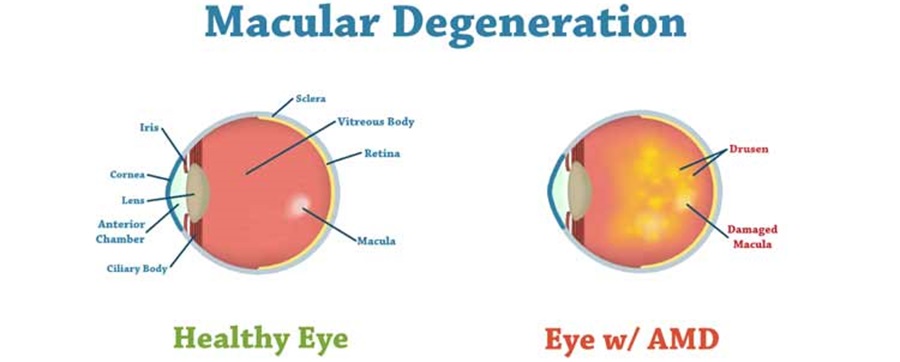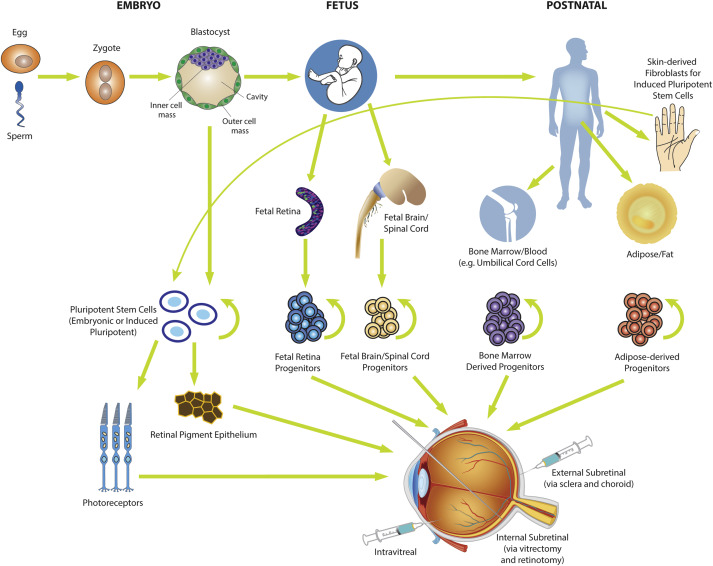Stem cell therapy for macular degeneration

Stem Cell Therapy for Macular Degeneration
Looking for "Stem Cell Therapy for Macular Degeneration in India at an affordable cost" ? Here, we answer the question and explain how to choose the best stem cell center for better results. To make an appointment, and learn more about neuro disorders, call / WhatsApp/ Viber - our experts answer at +91 9582708782
Stem Cell Therapy for Macular Degeneration: A Glimpse into the Future of Vision Restoration
Macular degeneration is a leading cause of vision loss, primarily affecting people over 50. This progressive eye condition damages the macula, the central part of the retina responsible for sharp, detailed vision. While traditional treatments aim to slow its progression, advancements in regenerative medicine are opening up new possibilities for restoring sight. One of the most promising developments is stem cell therapy.

What is Macular Degeneration?
Macular degeneration occurs in two main forms:
- Dry (atrophic) macular degeneration: The most common type, characterized by the gradual thinning of the macula and the buildup of drusen (yellow deposits).
- Wet (neovascular) macular degeneration: Less common but more severe, involving abnormal blood vessel growth that leaks fluid and blood into the retina.
Both types lead to blurred or distorted central vision, making reading, driving, or recognizing faces difficult.
Understanding Stem Cell Therapy
Stem cells are unique cells with the ability to develop into various cell types in the body, including specialized cells like retinal pigment epithelial (RPE) cells. These RPE cells are crucial for maintaining the health of photoreceptors (light-sensitive cells) in the retina.
Stem cell therapy aims to replace damaged or dying RPE cells with healthy ones derived from stem cells. The primary types of stem cells used in macular degeneration research include:
- Embryonic Stem Cells (ESCs): Pluripotent cells that can differentiate into any cell type, including retinal cells.
- Induced Pluripotent Stem Cells (iPSCs): Adult cells reprogrammed to behave like embryonic stem cells, offering personalized treatment options.
- Mesenchymal Stem Cells (MSCs): Found in bone marrow and other tissues, MSCs release growth factors that may reduce inflammation and promote retinal repair.
How Does Stem Cell Therapy Work for Macular Degeneration?
The process of stem cell therapy typically involves the following steps:
- Harvesting and Culturing Stem Cells: Stem cells are extracted, cultured in a lab, and guided to differentiate into RPE cells.
- Transplantation into the Retina: The newly formed RPE cells are transplanted into the affected area of the retina, replacing damaged cells.
- Promoting Repair and Regeneration: These healthy RPE cells can restore the retina's function by supporting photoreceptors and improving overall visual health.
Benefits and Promise of Stem Cell Therapy
- Potential to Restore Vision: Stem cell therapy offers hope for regenerating damaged tissues and reversing vision loss.
- Long-Term Solution: Unlike current treatments that only slow the progression, stem cells aim to repair the damage at its source.
- Personalized Medicine: iPSC technology allows stem cells to be derived from a patient’s cells, reducing the risk of immune rejection.
Challenges and Risks
While the results of clinical trials are promising, stem cell therapy for macular degeneration is still in its experimental stages. Challenges include:
- Safety Concerns: Ensuring stem cells don’t grow uncontrollably (a risk of tumor formation).
- Efficacy: Continued research is needed to determine the therapy’s long-term benefits.
- Accessibility: The cost and availability of stem cell treatments remain barriers to widespread use.
Current Research and Clinical Trials
Several clinical trials are underway to test the safety and effectiveness of stem cell therapy for macular degeneration. For example, researchers are using ESCs to generate RPE cells and transplant them into patients with promising early results. Additionally, iPSC technology is being explored for its ability to provide customized, patient-specific therapies.
The Future of Vision Restoration
Stem cell therapy holds incredible potential for transforming the treatment of macular degeneration. As technology advances and clinical trials progress, this innovative approach could offer a cure rather than just a treatment for millions of people suffering from vision loss.
While the therapy is not yet widely available, its ongoing development is a testament to the power of regenerative medicine in reshaping healthcare. For patients and families affected by macular degeneration, stem cell therapy represents a ray of hope for a clearer, brighter future.
Conclusion Macular degeneration can be life-altering, but science is on the brink of groundbreaking solutions. Stem cell therapy is an exciting frontier in ophthalmology, offering real possibilities for vision restoration. By staying informed and supporting ongoing research, we move closer to a world where blindness caused by macular degeneration becomes a thing of the past